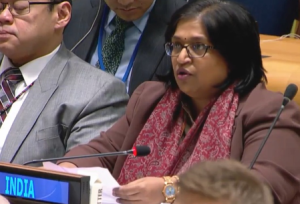Carter's funeral follows his journey from rural Georgia to global recognition in 100 years.
Jimmy Carter's funeral procession in Georgia honors his journey from a small farm in the South to becoming the 39th president and a renowned humanitarian.

The world has gathered in Georgia to bid a final farewell to former U.S. President Jimmy Carter. The state funeral, spanning six days, is a blend of personalized memorials and ceremonial grandeur befitting a former leader of the free world. Carter, who passed away at the age of 100 on December 29th, is remembered as a humanitarian whose impact was felt not just in America, but across the globe.
The first leg of the funeral procession took place in Carter's hometown of Plains, Georgia. The small town, with a population of just 700, was where Carter was born and raised during the Great Depression. The motorcade made its way through the familiar streets, passing by the family farm where a young Carter worked alongside Black sharecroppers employed by his father. From there, it continued to Atlanta, where Carter served as a state senator and governor before reaching the pinnacle of political power.
The final stop in Georgia was The Carter Presidential Center, where the former president's legacy lives on through his presidential library and The Carter Center, which promotes public health, democracy, and human rights. Carter's family, including his children, grandchildren, and great-grandchildren, accompanied his casket on its journey. His grandson, Jason Carter, who now chairs the center's governing board, remarked on the impact his grandfather had in his 100 years of life. He also thanked the center's 3,000 employees for continuing his grandfather's work.
The state funeral was a testament to Carter's life and his achievements. The pallbearers were from the Secret Service, who protected the former president for almost 50 years, and a military honor guard, including Navy servicemembers, in recognition of Carter's status as the only U.S. Naval Academy graduate to serve in the Oval Office. A military band played "Hail to the Chief" and a hymn for the devout Baptist.
The funeral service was a personal one, focusing on the man behind the presidency. Carter's son, James Earl "Chip" Carter III, remembered his father as an incredible man who was supported and inspired by an amazing woman, his wife Rosalynn. He also highlighted their joint efforts in changing the world. Chip's son, Jason, shared a similar sentiment, saying, "It's amazing what you can cram into a hundred years."
As the public paid their respects at the Carter Presidential Center, stories of the former president's impact on their lives emerged. Scott Lyle, an engineer from New York, recalled working with Carter on Habitat for Humanity in 2003 and how he has since traveled around the world to build houses with the group. Lyle praised Carter for being a man who not only talked about helping others but also actively did so.
The state funeral will continue in Washington before returning to Plains for the final farewell. Carter will be buried next to his wife of 77 years, near the home they built before his first state Senate campaign. The couple spent nearly all their lives in Plains, except for Carter's time in the Navy, four years as governor, and four years as president. As the hearse made its way through the town, mourners lined the streets, holding flowers and wearing pins with Carter's image.
Willie Browner, who grew up in a nearby town, described Carter as a man from a bygone era of politics, one who thought of others before himself. He said it meant a great deal to him to have a president come from a small Southern town like his, and he worries that it may not happen again. Indeed, Carter's own funeral arrangements were a reflection of his humble beginnings and his rise to the world stage.
The funeral procession passed by the family peanut warehouse and the small home where Carter's mother, a nurse, delivered his future wife. It also went past the old train depot that served as Carter's campaign headquarters during his 1976 presidential bid, which was a modest effort compared to the billion-dollar campaigns of today. At the Carter farm, the National Park Service rangers stood in formation to honor the former president, while the old farm bell rang 39 times, symbolizing his place as the 39th president.
The farm also holds the tennis court built by Carter's father, a reminder of the privilege and hard rural life that shaped his upbringing. Carter often spoke and wrote about his formative years and how they influenced his policies on government and human rights. This was remembered by Calvin Smyre, a former Georgia legislator, who praised Carter's stance against racial segregation, which allowed Black people to hold positions of power in Georgia.
As the funeral procession moves on to Washington and eventually back to Plains, the world remembers Jimmy Carter as a man who dedicated his life to serving others. His legacy will live on through the countless lives he touched and the work he did to make the world a better place.
13 Views










